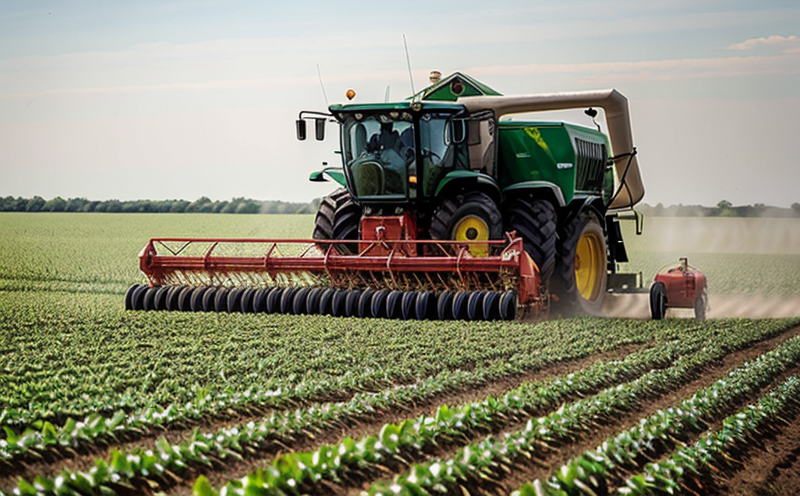Crop Productivity Simulation Modeling
Crop Productivity Simulation Modeling (CPSTM) is a critical tool in modern agricultural and forestry testing. It allows for the simulation of crop growth, yield potential, and productivity under various environmental conditions. This service utilizes advanced computational models to predict how different variables—such as climate change, soil quality, water availability, and pest infestations—affect crop performance.
The primary goal of CPSTM is to provide farmers and researchers with actionable insights that can inform decision-making processes related to resource allocation, planting strategies, and breeding programs. By simulating different scenarios, stakeholders can anticipate potential challenges and opportunities before they arise in the field or forest.
CPSTM typically involves several key steps: data collection, model development, parameterization, validation, and application. Data collected from various sources including historical records, satellite imagery, weather stations, and soil sensors form the basis of these simulations. The models then incorporate this data to predict outcomes based on specified conditions.
One of the most significant advantages of CPSTM is its ability to offer predictive analytics. Farmers can use this information to optimize their practices for maximum efficiency and profitability. For example, they might adjust irrigation schedules or choose specific varieties that are better suited to local climates.
In addition to enhancing productivity, CPSTM also plays a crucial role in sustainability efforts by helping to minimize waste and reduce environmental impact. By simulating the effects of different practices, such as no-till farming or cover cropping, researchers can identify methods that promote healthier ecosystems while maintaining high yields.
- Why Choose This Test: The ability to predict future outcomes accurately is invaluable in agriculture and forestry. CPSTM provides a reliable framework for making informed decisions about resource use and management strategies.
- International Acceptance and Recognition: Many countries have recognized the value of CPSTM, especially those looking to improve food security or manage natural resources sustainably. Organizations like FAO and UNESCO provide guidelines and standards that promote best practices in this field.





